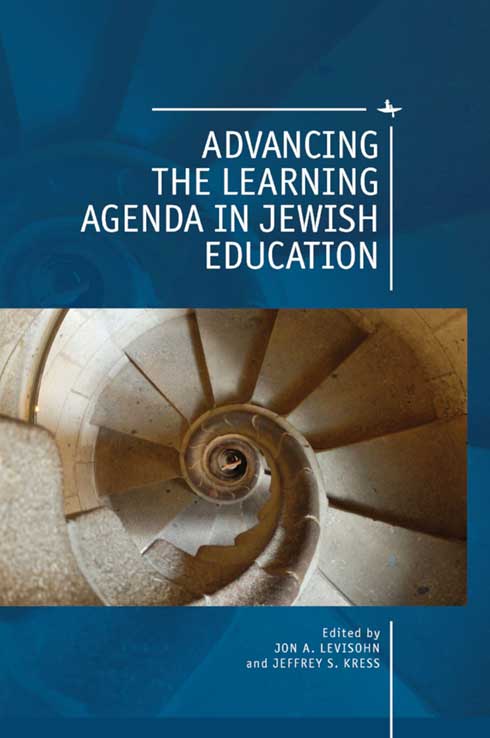Learning Agenda Project
 Now available via open access: Advancing the Learning Agenda in Jewish Education, edited by Jon A. Levisohn and Jeffrey S. Kress (2018, Academic Studies Press).
Now available via open access: Advancing the Learning Agenda in Jewish Education, edited by Jon A. Levisohn and Jeffrey S. Kress (2018, Academic Studies Press).
What is the biggest challenge facing Jewish education today?
We believe that Jewish educators, policy makers and curriculum and program designers are flying blind.
Too often, across the various settings of Jewish education, we are unclear or imprecise, or just unsophisticated, about our desired learning outcomes. We lack the language to articulate those outcomes in compelling ways, in terms of knowledge and skills but also in terms of dispositions, both moral and intellectual. We assess outcomes inconsistently or not at all, in part because there are few if any effective instruments within Jewish education for assessing our most ambitious goals.
Nor is the problem limited to learning outcomes: We do not know enough about the learners, either. We lack a deep understanding of learners’ or participants’ understanding of the subjects that we teach, or of what sense they make of their formal or informal educational experiences. We do what is expedient or what seems like it might be engaging, but we actually know very little about what students think or feel, how learners learn whatever it is that we are trying to teach, what they understand about specific subjects or about their place in the world, or what they can do as a result of the learning opportunities constructed for them by Jewish educators.
The Learning Agenda project brought together researchers in Jewish and general education to share their perspectives on how to advance the learning agenda in Jewish education. They presented their draft essays at a March 2015 conference.
Contributors
| Contributor | Essay Title |
|---|---|
| Rena Dorph Lawrence Hall of Science, Berkeley |
Activating Jewish Learners: Positioning Youth for Persistent Success in Jewish Learning and Living |
| Eli Gottlieb Mandel Leadership Institute |
Learning How to Believe: Why Religious Beliefs and Attitudes Require Different Kinds of Learning |
| Ari Y. Kelman Stanford University |
Learning to be Jewish |
| Janet Kolodner Georgia Tech |
Fostering Identity and Disposition Development in Jewish Education: A View From the Learning Sciences |
| Gil Noam Harvard University |
Socio-Emotional Skills in Children and Youth: An Approach for Students Involved in Jewish Education |
| Joseph Reimer Brandeis University |
Learning the Whole Game of Shabbat |
| Lauren Resnick University of Pittsburgh, and Daniel Resnick Carnegie-Mellon University |
How Text Study Can be Reclaimed as a Vehicle for Advancing Contemporary Education and Community Engagement |
| Baruch Schwartz Hebrew University |
Observing Havruta Learning From the Perspective of the Learning Sciences |
| Simone Schweber University of Wisconsin |
Learning about Learning at the Imaginative Extremes: Shoah Education and its Implications for Jewish Education |
| Sam Wineburg Stanford University |
"Is This a Real Story?" Learning and the Narratives of Jewish Identity |
Additional Conference Participants
| Participant | Institution |
|---|---|
| Sharon Avni | CUNY |
| Fern Chertok | Brandeis University |
| Sharon Feiman-Nemser | Brandeis University |
| Michael Feuer | The George Washington University |
| Lisa Grant | HUC-JIR |
| Jane Kanarek | Hebrew College |
| Orit Kent | Brandeis University |
| Moshe Krakowski | Yeshiva University |
| Jonathan Krasner | Brandeis University |
| Marjorie Lehman | Jewish Theological Seminary |
| Ted Sasson | Jack, Joseph and Morton Mandel Foundation |